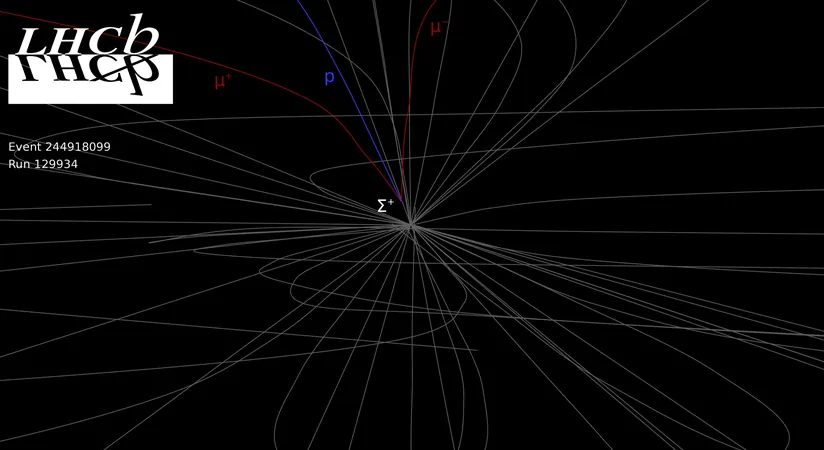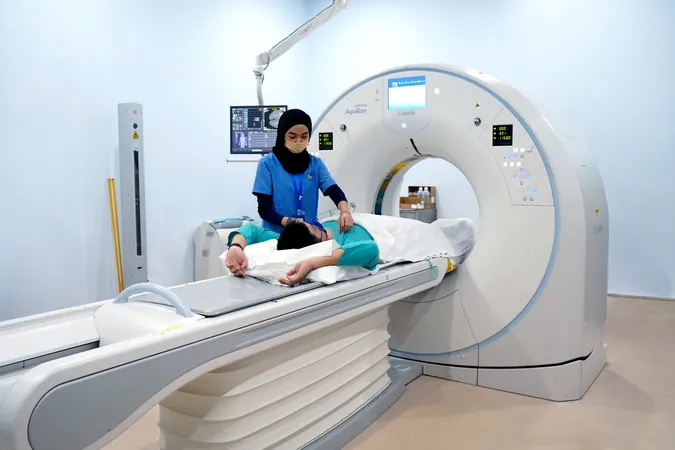
Scientists Unveil Mind-Blowing Research: Testing Sci-Fi Technologies Before They Hit Reality!
2025-08-14
Author: Michael
Exploring the Unimaginable: Sci-Fi Meets Reality
Imagine a world where the ramifications of emerging technologies are anticipated before they even become a part of our everyday lives. Enter the groundbreaking research on what’s dubbed "science fiction science" or "sci-fi-sci," where visionary researchers aim to predict the societal impacts of tomorrow's innovations to prevent us from stepping into a dystopian future.
A Game-Changer in Predictive Technology
Led by brilliant minds like Iyad Rahwan from Germany's Max Planck Institute, Azim Shariff of Canada’s University of British Columbia, and Jean-Francois Bonnefon from France’s Toulouse School of Economics, this movement is about applying the scientific method to technologies still on the drawing board. Could we understand how autonomous cars or next-gen AI might shape our social fabric before they hit the market? Yes, they can.
Simulating Tomorrow's Technologies Today
By simulating future tech and collecting real-time reactions from participants, these researchers want to shed light on the possible impacts of innovations like social media, self-driving cars, and advanced genetic engineering. They hope this foresight will influence how these technologies are developed and regulated.
The Digital Dystopia We Could Have Avoided
Consider the ramifications of social media. Had we run comprehensive simulations beforehand, perhaps we could have dodged the mental health crises associated with constant online scrutiny and social comparison, as depicted dramatically in the “Black Mirror” episode, "Nosedive." This episode illustrates a society obsessed with social credit scores that dictate one’s worth—a concept alarmingly close to reality with apps like Gage emerging.
The Controversy of Social Credit Systems
The Gage app, which tracks employee ratings and compiles a 'social credit score,' has raised eyebrows as it could lead to severe discrimination against individuals based on superficial interactions. Critics worry that a system emphasizing social feedback over actual performance might marginalize those who communicate differently, especially neurodivergent individuals.
Looking Ahead: A Cautionary Framework for Innovation
The researchers emphasize the dangers of speculative technologies such as real-time AI monitoring systems and genetic screening processes that could shape human beings in ways reminiscent of dystopian literature like "Brave New World." The European Union has even started discussions about banning such intrusive technologies to safeguard society.
Can We Use Virtual Reality to Prepare for the Future?
As scientists grapple with the challenges of predicting human behavior in a tech-driven future, they are exploring the use of virtual reality to introduce individuals to these nascent technologies. Will this innovative approach help us accurately gauge their societal impact? Only time will tell, but one thing is certain: the line between science fiction and reality is becoming increasingly blurred.









 Brasil (PT)
Brasil (PT)
 Canada (EN)
Canada (EN)
 Chile (ES)
Chile (ES)
 Česko (CS)
Česko (CS)
 대한민국 (KO)
대한민국 (KO)
 España (ES)
España (ES)
 France (FR)
France (FR)
 Hong Kong (EN)
Hong Kong (EN)
 Italia (IT)
Italia (IT)
 日本 (JA)
日本 (JA)
 Magyarország (HU)
Magyarország (HU)
 Norge (NO)
Norge (NO)
 Polska (PL)
Polska (PL)
 Schweiz (DE)
Schweiz (DE)
 Singapore (EN)
Singapore (EN)
 Sverige (SV)
Sverige (SV)
 Suomi (FI)
Suomi (FI)
 Türkiye (TR)
Türkiye (TR)
 الإمارات العربية المتحدة (AR)
الإمارات العربية المتحدة (AR)